 August 12, 2021 John E. Ross, KD8IDJ, Editor
| ||||||
Visit with ARRL at the QSO Today Virtual Ham Expo The QSO Today Virtual Ham Expo is this weekend, Saturday and Sunday, August 14 - 15. Register now and visit the ARRL booth to connect with ARRL staff representatives in the video lounges on Saturday, 1500 - 2300 UTC, and Sunday, 1500 - 1800 UTC. There will be in-booth drawings and special offers for the ARRL online store and for joining or renewing membership.
On Sunday, 1500 UTC (8 AM PDT / 11 AM EDT), ARRL Laboratory Manager Ed Hare, W1RFI, will present, "How to Comply with FCC RF Exposure Rules," in the virtual auditorium. "Amateur radio has had rules regulating RF exposure for decades," Hare explains. "The FCC recently announced changes to those rule that change the ways that all radio services determine whether they need to do an evaluation of RF exposure or are exempt from that need. I put together this presentation to explain the rules changes and to answer the most common questions hams have about the rules and what is expected of them." ARRL is a QSO Today Virtual Ham Expo partner. Bouvet Island DXpeditions Are in Planning Stages for 2021, 2022, and 2023 Parallel planning is under way by three entities for DXpeditions to Bouvet Island in 2021, 2022, and 2023. The remote volcanic, glacial sub-Antarctic island in the South Atlantic is the second-most-wanted DXCC entity, according to Club Log. In June, the Intrepid-DX Group canceled its 3Y0J DXpedition, planned for 2023, after the RV On August 8, a DXpedition using the 3Y0J call sign announced the signing of a contract with the expedition vessel Marama, a 101-foot sailing ketch with "a proven track record and experienced polar crew." Co-leaders for the November 2022 effort are Ken Opskar, LA7GIA; Rune Øye, LA7THA, and Erwann Merrien, LB1QI. Opskar, who holds the 3Y0J license, split from the Intrepid-DX Group DXpedition effort he headed with co-leader Paul Ewing, N6PSE. In a brief announcement on August 3, Ewing had said that a Bouvet DXpedition team under "revised leadership" had found "a suitable/affordable vessel willing to take us to Bouvet," and was negotiating the terms of that charter contract. Ewing's co-leaders would be David Jorgensen, WD5COV, and Kevin Rowett, K6TD. The Intrepid-DX Group now must secure a new license and landing permission from the Norwegian Polar Institute. Meanwhile, Polish radio amateur Dom Grzyb, 3Z9DX, says planning continues for a second expedition on Bouvet Island in late 2021, using the call sign 3Y0I. "As you probably know, our first attempt to reach the island of Bouvet in March 2019 failed," Grzyb says on the DXpedition's website. "We were so close -- just 63 nautical miles off the shore of Bouvet Island." The reconstituted 3Y0J group under the LA7GIA/LA7THA/LB1QI triumvirate said in its August 8 announcement that it planned to begin fundraising "immediately." It would field a team of 12 operators for a 20-day stay "around Bouvet." They would set up at Cape Fie at the southeastern part of the island, which they called "the only feasible part where a DXpedition can safely set up camp on rocky ground; we will not set [up] camp on the glacier." ARRL Podcasts Schedule
The On the Air and Eclectic Tech podcasts are sponsored by Icom. Both podcasts are available on iTunes (iOS) and Stitcher (Android), as well as on Blubrry -- On the Air | Eclectic Tech. July Volunteer Monitor Program Report Released The July 2021 activity report of the Volunteer Monitor (VM) Program has been released. This program is a joint initiative between ARRL and the FCC to enhance compliance in the Amateur Radio Service.
The IT staff at ARRL Headquarters has begun work on the automated system for Volunteer Monitors to report monthly monitoring hours and Incident Reports. -- Thanks to Volunteer Monitor Program Administrator Riley Hollingsworth, K4ZDH AMSAT Continues Efforts to Debug AO-109 In mid-July, AMSAT announced that AO-109 (RadFxSat-2/AMSAT Fox-1E) was being opened for amateur use. AMSAT advised operators to use efficient modes for making contacts, such as CW or FT4, After soliciting telemetry reports from the satellite, the AMSAT Engineering and Operations team is continuing its efforts to "debug" AO-109. "First, the telemetry we have received confirms what we inferred from our earlier experiments," AMSAT announced over the weekend. It said antennas are open, AO-109 is in transponder mode, and the spacecraft "does receive commands successfully, especially from a strong command station." The team has also determined that the onboard telemetry is working, but the transmitter output is very low -- between 6 and 8 mW. "You can compare this to our pre-launch testing, which showed power output of somewhat over 100 mW, as designed," AMSAT said. It's hypothesizing that one of the dual-power amplifier chips has failed. Efforts to command higher output from the telemetry modulator into the mixer and power amplifier resulted in no change. "It may imply that 8 mW is the highest to expect AMSAT said "some data" for the Vanderbilt University commercial-off-the-shelf (COTS) radiation experiment have been retrieved. Vanderbilt funded AO-109. Conceding that its Earth stations will require more robust receiving capabilities, it continues to solicit telemetry from AO-109. "Both for Vanderbilt University and for our own engineering testing, we would really appreciate even a few frames of telemetry that any stations can receive," AMSAT said. AMSAT provides a web page that reports on the health of AO-109. -- Thanks to AMSAT News Service ARRL Learning Network Webinars Visit the ARRL Learning Network (a members-only benefit) to register, check on upcoming webinars, and to view previously recorded sessions. Introduction to DMR and Digital Voice -- Tim Deagan, KJ8U / Thursday, September 9, 2021 at 3:30 PM EDT (1930 UTC)
ARRL members may register for upcoming presentations and view previously recorded Learning Network webinars. ARRL-affiliated radio clubs may also use the recordings as presentations for club meetings, mentoring new and current hams, and discussing amateur radio topics. The ARRL Learning Network schedule is subject to change. Announcements
Mines on the Air (MOTA) Promoted as an Activity Similar to Summits on the Air (SOTA) Many hams enjoy getting out of the house to operate, engaging in such activities as Summits on the Air (SOTA), Parks on the Air (POTA), or Islands on The Air (IOTA). Now it's time to try Mines on the Air (MOTA) -- but banish any thoughts of underground operating. The spark plug for this activity is John "JohnnyF" Fuller, WJ0NF, in Colorado. "I decided to start...the MOTA project because mines are everywhere MOTA aims to see operators get out of the shack, enjoy the hobby, and take others (spotters) along for the ride. "It is meant to promote the hobby, enjoy the world around us, and bring a bit of history into our lives," Fuller said. "I encourage Activators to document their adventure with photos and videos that they can share with everyone -- either via this site, their own sites, or YouTube videos." He continued, "I would also encourage activators to bring back part of the enjoyment via QSL cards. If you have the means, spend a few dollars, and create one-of-a-kind, limited-edition QSL cards for the spotters that couldn't be there." Fuller said he's planned on limited runs of 20 - 30 cards for each activation, each card bearing an image of the relevant mine. "We are just starting out, and I am sure things will change as the project grows," Fuller said. "For now, I would like to create a form where MOTA Activators can fill out the relevant information and submit it for addition to the database. Once the project grows past a critical point, we will have to move to a more interactive site where you can
search through the database and upload information on your own." Fuller said to activate a mine and have it added to the database will just include information describing where the site is located and photographic proof that the operator was there. If a link to a website for the mine is available, he'd like that included too. Fuller's Activation Requirements page has more details. Fuller has one important caveat: activating a mine for MOTA "is not meant for people to risk their health or lives by exploring unsafe locations. No more than SOTA or IOTA. In each activity, you need to use common sense. Stay out of these old mines and be safe." He notes that not all mine sites are open to the public. "Make sure you know ahead of time what legal access you have to the location," he said. Amateur Radio in the News ARRL Public Information Officers, Coordinators, and many other member-volunteers help keep amateur radio and ARRL in the news.
Share any amateur radio media hits you spot with us. Journalist, Archivist, and Broadcaster Wolf Harranth, OE1WHC, SK Wolf Harranth, OE1WHC/OE3WHC, of Vienna, Austria, died on August 3 after a brief illness. He was 79. His work as a journalist and broadcaster focused on electronic media and computing. For many years, he worked for Radio Austria International (ROI), where he hosted several programs of interest to shortwave listeners (SWLs) He was also the founder of the Dokumentationsarchiv Funk (DokuFunk) -- the radio documentary archive. What began as a QSL card collection is now a considerable archive on the history of radio and the Amateur Radio Service, with many contemporary historical documents. The archive now holds some 9 million items, including the legendary Yasme/Colvin collection and more recently the HZ1AB QSL collection, making it the world's largest institution with archival records and collections of any kind on the history of radio, with a focus on broadcasting and amateur radio." The holdings are accessible free of charge and are constantly being added to. Less well known is Harranth's work as a literary translator. He was awarded the Austrian State Prize for Literary Translation and the international Astrid Lindgren Translation Prize, among others, for this work. He translated classics such as The Jungle Book and The Adventures of Huckleberry Finn. In 2017, Harranth received the Roy Stevens, G2BVN, memorial award, International Amateur Radio Union Region 1's highest recognition for excellence in amateur radio, for his decades of effort and work on the DokuFunk archive. -- Thanks to The Daily DX and IARU Region 1 HF Manager Tom Kamp, DF5JL In Brief...
The K7RA Solar Update Tad Cook, K7RA, Seattle, reports: Solar activity continues to be very weak, and the latest 45-day outlook seems to show more of the same. Sunspots only appeared on 3 out of the 7 days of our August 5 - 11 reporting week, and these appearances were not consecutive. Average daily sunspot numbers actually rose a little, from 6 to 9.9. Average daily solar flux softened from 74.8 to 73.7. Average daily Predicted solar flux over the next few weeks shows a predicted maximum of only 75 on just one day, September 11. The solar flux forecast from USAF and NOAA shows 74 on August 12 - 14; 72 on August 15 - 19; 73 on August 20; 74 on August 21 - September 1; 73, 72, 72, 74, and 74 on September 2 - 6; 73 on September 7 - 10; 75 on September 11, and 72 on September 12 - 15. Predicted planetary A index is 8 on August 12; 5 on August 13 - 14; 8 on August 15 - 16; 5 on August 17 - 22; 8, 12, and 8 on August 23 - 25; 5 on August 26 - September 1; 8 and 12 on September 2 - 3; 8 on September 4 - 6; 5 on September 7 - 11; 12, 10, 10, and 5 on September 12 - 15. Sunspot numbers for August 5 - 11 were 36, 0, 0, 11, 0, 0, and 22, with a mean of 9.9. The 10.7-centimeter flux was 74.3, 74.4, 73.7, 73.5, 73, 73.3, and 73.8, with a mean of 73.7. Estimated planetary A indices were 3, 7, 11, 5, 5, 7, and 6, with a mean of 6.3. Middle latitude A index was 3, 9, 9, 6, 6, 9, and 7, with a mean of 7. A comprehensive K7RA Solar Update is posted Fridays on the ARRL website. For more information concerning radio propagation, visit the ARRL Technical Information Service, read "What the Numbers Mean...," and check out this Propagation Page. A propagation bulletin archive is available. For customizable propagation charts, visit the VOACAP Online for Ham Radio website. Share your reports and observations. Just Ahead in Radiosport
Upcoming ARRL Section, State, and Division Conventions Some conventions and hamfests may have been canceled or postponed due to the coronavirus pandemic. Check the calendar of canceled events on the ARRL website.
Find conventions and hamfests in your area.
ARRL -- Your One-Stop Resource for
Subscribe to...
Free of charge to ARRL members...
| ||||||

.jpg) Braveheart was put up for sale. Not long after, the Intrepid-DX Group revived its plans and was seeking a suitable vessel.
Braveheart was put up for sale. Not long after, the Intrepid-DX Group revived its plans and was seeking a suitable vessel..jpg) The latest episode of the On the Air podcast (Episode 20) features a discussion with Oliver Dully, K6OLI, who describes how amateurs use the Winlink network for various public service applications. He also discusses the equipment and software necessary to access Winlink.
The latest episode of the On the Air podcast (Episode 20) features a discussion with Oliver Dully, K6OLI, who describes how amateurs use the Winlink network for various public service applications. He also discusses the equipment and software necessary to access Winlink..jpg) The latest edition of Eclectic Tech (Episode 40) describes how NASA is using rockets to study Very Low Frequencies. It also discusses a new Universal Serial Bus standard that allows higher voltages and currents. Topping things off will be a chat with Dr. Dan Fay, KG5VBY, about QMesh, an innovative way to send digital voice communications using inexpensive LoRa transceivers.
The latest edition of Eclectic Tech (Episode 40) describes how NASA is using rockets to study Very Low Frequencies. It also discusses a new Universal Serial Bus standard that allows higher voltages and currents. Topping things off will be a chat with Dr. Dan Fay, KG5VBY, about QMesh, an innovative way to send digital voice communications using inexpensive LoRa transceivers..png) the Amateur Extra-class portion of the 20-meter band.
the Amateur Extra-class portion of the 20-meter band..png) because issues with the satellite make SSB voice contacts "challenging at best."
because issues with the satellite make SSB voice contacts "challenging at best."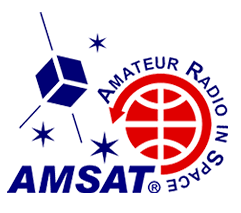 from the transponder as well," AMSAT said.
from the transponder as well," AMSAT said. This webinar serves as an introductory overview of digital voice (DV) technologies for ham radio. This presentation focuses on DMR with notes on System Fusion, D-STAR, and more. Included will be a description of DV architecture and components, and the interesting opportunities and challenges that DV presents.
This webinar serves as an introductory overview of digital voice (DV) technologies for ham radio. This presentation focuses on DMR with notes on System Fusion, D-STAR, and more. Included will be a description of DV architecture and components, and the interesting opportunities and challenges that DV presents.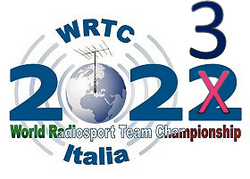 Qualification standings
Qualification standings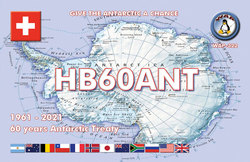 Members of Switzerland's IARU member-society (
Members of Switzerland's IARU member-society (.jpeg) in my area, and I was already checking them out and researching their history," Fuller explained on the MOTA website. He got into ham radio after losing "internet, cell, and landline service for the fourth time in 2016."
in my area, and I was already checking them out and researching their history," Fuller explained on the MOTA website. He got into ham radio after losing "internet, cell, and landline service for the fourth time in 2016."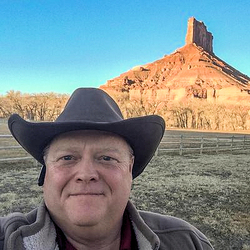
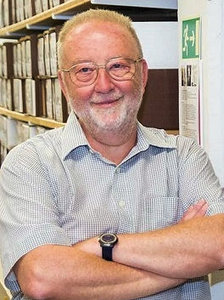 and radio amateurs. These included the German-language Kurzwelle Panorama -- later Medienpanorama and, finally, Intermedia.
and radio amateurs. These included the German-language Kurzwelle Panorama -- later Medienpanorama and, finally, Intermedia..jpg) ARRL member and professional engineer Les Kramer, WA3SGZ, of Longwood, Florida, will be among the 2020 inductees into the
ARRL member and professional engineer Les Kramer, WA3SGZ, of Longwood, Florida, will be among the 2020 inductees into the .jpg) The Intrepid-DX Group has Announced its Essay Contest Winners Faith Hannah Lea, KD3Z, is the first-place winner of the Intrepid-DX Group First Annual
The Intrepid-DX Group has Announced its Essay Contest Winners Faith Hannah Lea, KD3Z, is the first-place winner of the Intrepid-DX Group First Annual 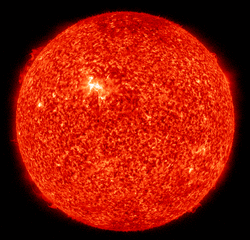 planetary A index went from 8 to 6.3, while middle latitude averages were 7, down from 8.7 last week.
planetary A index went from 8 to 6.3, while middle latitude averages were 7, down from 8.7 last week..jpg)








